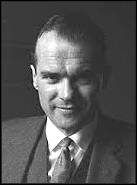Robert Bilheimer
The Rev. Dr. Robert S. Bilheimer was born September 28, 1917, in Denver, Colorado. He died at the age of 89 on December 17, 2006, at the M. M. Ewing Continuing Care Center of Thompson Hospital in Canandaigua, NY, from complications of a hip fracture and late stages of Alzheimer’s disease.
“The Message of Montreal on Faith and Order” (1963)
“World Confessional Bodies and Christian Unity” (1963)
Bio from Yale Divinity School, 1/4//2012 (Page on their site no longer exists.)
 The Rev. Dr. Robert S. Bilheimer, a Presbyterian minister, was at or near the center of much of the ecumenical activity of the latter half of the twentieth century.
The Rev. Dr. Robert S. Bilheimer, a Presbyterian minister, was at or near the center of much of the ecumenical activity of the latter half of the twentieth century.
He was educated at Yale (B.A., 1939; M.Div., 1945), he began his ecumenical activity as executive secretary of the Interseminary Movement 1945-48. From 1948 to 1954 he was concurrently program secretary of the New York office of the World Council of Churches and minister of Westminster Presbyterian Church, Jamaica, Queens, New York.
In 1948 Bilheimer was administrative secretary for the First Assembly of the World Council in Amsterdam, and held the chief organizing role also for the Second Assembly (Evanston, 1954) and the Third (New Delhi, 1961). He was associate general secretary and director of the division of studies of the World Council in Geneva, Switzerland 1954-63, during which time he accomplished special missions to Hungary (1956), South Africa (1960), and the USSR (1962).
Returning to the parish pastorate, he served as senior minister of Central Presbyterian Church in Rochester, NY 1963-66, but was called back to the ecumenical movement as director of the international affairs program of the National Council of Churches (1966-73) during the time of fierce debate about the Vietnam War.
In 1974 his career reflected the entry of the Roman Catholic Church into the ecumenical movement in the previous decade at the Second Vatican Council, when he became executive director of the Collegeville Institute for Ecumenical and Cultural Research, affiliated with Saint John’s Abbey and University in Minnesota. Fr. Kilian McDonnell, OSB, founder and president of the Institute, credits him with being its “second founder,” and remembers especially his insistence, “Don’t just give me words. I want to see what you do.” In the interests of what Bilheimer called the ecumenical study imperative of “thinking ahead together,” he established a tradition of first-person discourse and open-ended agendas that is recognized in ecumenical circles around the world as “the Collegeville method.” He retired from the Institute in 1984.
Bilheimer, who called himself an “ecumenical engineer,” was both an organizational genius and an inveterate provider and provoker of thought. His books include The Quest for Christian Unity (1953), A Spirituality for the Long Haul: Biblical Risk and Moral Stand (1984), and Breakthrough: The Emergence of the Ecumenical Tradition (1989), his personal account of those momentous first four decades of the World Council. Of special significance is his telling the story of the “mission of fellowship through diplomacy” that he led to South Africa in the immediate aftermath of the Sharpeville uprising in 1960. He organized a consultation in Cottesloe that held the churches together, but the next year the prime minister demanded that the Afrikaner participants retract their agreement to the Cottesloe Report. All but one did. But that one, the late C. F. Beyers Naudé, went on to found the Christian Institute of Southern Africa and became an internationally recognized symbol of an interracial confessing church movement. Naudé always acknowledged that it was Bob Bilheimer who turned him around.
He received many tributes, including honorary doctorates from Chicago Theological Seminary (1954), Butler University (1954), and Hamilton College (1980). In 1985 Saint John’s Abbey and University gave him their highest honor, the Pax Christi Award, which recognizes an individual of strong faith whose life exemplifies the importance of spiritual values and concern for the welfare of others.
